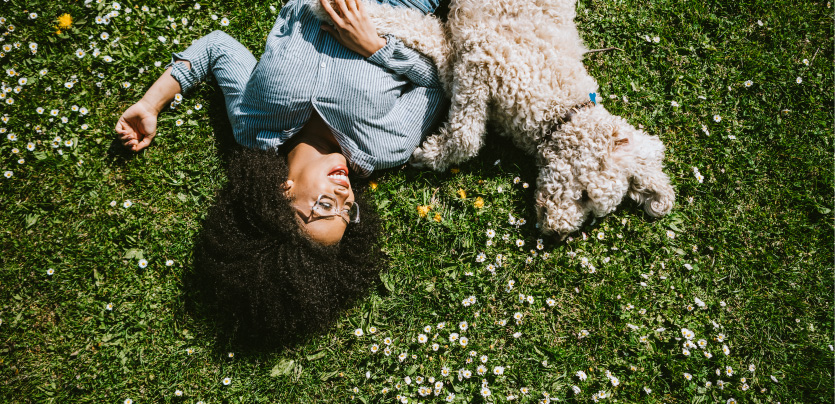Welcoming a new dog or puppy into your home is a joyous experience, and any dog owner will tell you how rewarding it is to have a furry companion. The bond you and your pup will develop over time is unlike any other, and is scientifically shown to help improve both your mental and physical health.
Dog ownership is more than rewards and bonding, though. It also comes with a lot of responsibility and requires a long term commitment that can, at times, be overwhelming.
When you first bring your new puppy or dog home, it can be quite an adjustment for everyone involved. It’s important to know what to expect, and to plan and prepare yourself for the realities of ownership ahead of time, to help both you and your new pup through the transition.
Here are 6 tips for first time dog owners.
Prepare for an Adjustment Period
No matter what breed, temperament or age of dog you bring home, there will be an adjustment period at first – for everyone involved. Some dogs adjust easily to new environments, but depending on their background and personality, others might take longer. If you have children, it’s important to take it very slow as they adjust to having an animal in the home. You, the owner, may be surprised at how much bringing a dog home can change your life and routine. Wake ups in the middle of the night to go outside for the bathroom, having to walk your energetic dog in rainstorms, managing barking, chewing and hair – these are all just a few things that dog owners need to expect. If you prepare for the realities of dog ownership, it’ll help both you and your new pup to relax during the transition.
Puppies
Bringing home a puppy is not quite the same as bringing home an adult dog. It’s a good idea to do your research on puppies before they step through your front door. Puppies have special needs when it comes to socialization, vaccinations and training. Depending on their age, they may begin teething within days or weeks of arriving at home, which can result in damage to upholstery, shoes and any other chewable item in your pup’s path. Puppies are wonderful, loving and will make great companions, but their first year of life can sometimes feel like a full time job. Do your research on the specific needs of the puppy you’ve chosen to bring home, and prepare for a marathon – not a sprint.
Dog Training
Every dog needs training, even if it’s just a daily practice of basic commands between the two of you. Dog training helps to provide structure for dogs, and it can help the two of you to develop a special bond over time. If you’ve adopted a puppy or an adult dog who is already demonstrating some behavior issues, it may be helpful to seek out the support of a professional dog trainer to work with both of you. Some dog owners prefer to enroll in agility training for their high energy pups, as well. No matter what, providing the structure of basic training is essential to a dog’s well-being.
Stock Up on Supplies
Before you bring home your new pup, make sure to stock up on everything they need to make the transition as smooth as possible. Reach out to your vet to find out what type of food is best suited for your dog’s breed and his age. You’ll want to have dog bowls, leashes, a collar, toys, beds, a crate and more. Depending on their breed, they may need additional supplies for their coats, and they may even require grooming. A good place to start is to hit up your local pet supply store a few weeks before you bring your new fur-baby home.
Find a Vet
Finding the right vet for you and your new dog is essential to their short and long term health and well-being. Not only will your vet be your dog’s best support during illnesses and injuries that may occur over the years, but they’ll help to guide you in providing the nutritional, physical and overall health support that your growing pup will need. Puppies often need several rounds of vaccinations after being adopted, so your vet will be a regular support in their early weeks and months. Ask friends for their recommendations, read online reviews and even schedule a phone call with a potential veterinary practice in advance to make sure they’re the right fit for your new dog and you.
Behavior/Health Problems
At some point in your pup’s life, it’s likely that they will develop both behavior and health issues. It’s important to go in expecting this so you can be prepared both mentally and financially. Health problems in dogs can be stressful and quite costly. As a dog owner, it will be your responsibility to find care for your pet during these times and foot the bill. Be sure that you feel financially prepared for your pup’s healthcare before even considering pet ownership. Behavior problems may also require the help of a trained professional, which can be costly, as well. It’s important for you to be committed to your dog and their well-being for the long haul, so that when issues both small or large arise, you’re willing and able to help support them through it.


